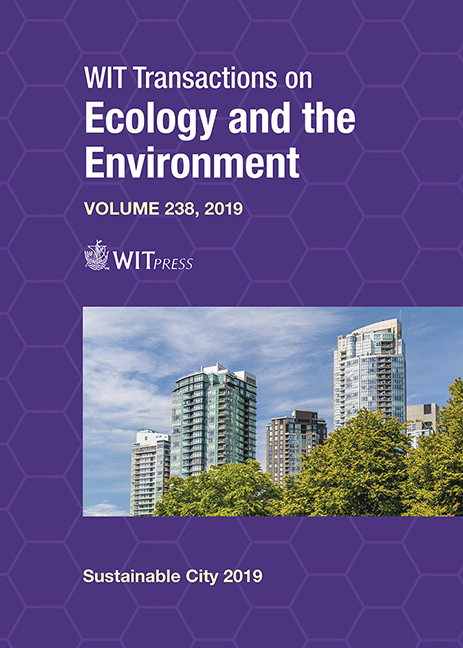LOCAL PEOPLE’S PERCEPTIONS AND ATTITUDES TOWARDS A GREEN CITY: CASE STUDY OF PERUNGUDI, CHENNAI, INDIA
Price
Free (open access)
Transaction
Volume
238
Pages
11
Page Range
245 - 255
Published
2019
Paper DOI
10.2495/SC190221
Copyright
WIT Press
Author(s)
SHARMILA JAGADISAN
Abstract
One of the more promising Sustainable Development Goals is to promote prosperity in protecting the planet by using the “green city” as one of the catalysts. To raise environmental awareness, World Environment Day has been celebrated on 5 June since 1974, and while the concept of a “green city” has started to gain momentum in India, high population density and land scarcity has forced people to settle near ecologically sensitive areas within conventional development models, which has led to the rapid deterioration of resources. The crucial starting point for this paper is to find out whether the knowledge of the “green city” has had deeper penetration to all sectors of the population. The main objective is to evaluate the extent to which individuals and local governance are involved in the “green city” movement. Our research investigates whether we have responsive and inclusive government institutions with the capacity to deliver services efficiently and equitably. The author has taken Perungudi, which is one of the fastest growing suburbs in Chennai city due to a rapidly growing IT industry, as a case study. This research first divides the Perungudi area into two districts based on the socio-economic status and then investigates local people’s knowledge and perception of the “green city” based on the following tools: (i) a household survey; (ii) secondary reports; and (iii) a transect walk. The results underline how much work lies ahead for “green city” advocates: revealing the gaps in our knowledge about public attitudes towards the “green city” concept.
Keywords
SDG’s, green city, awareness, socio-economic, development, deterioration





